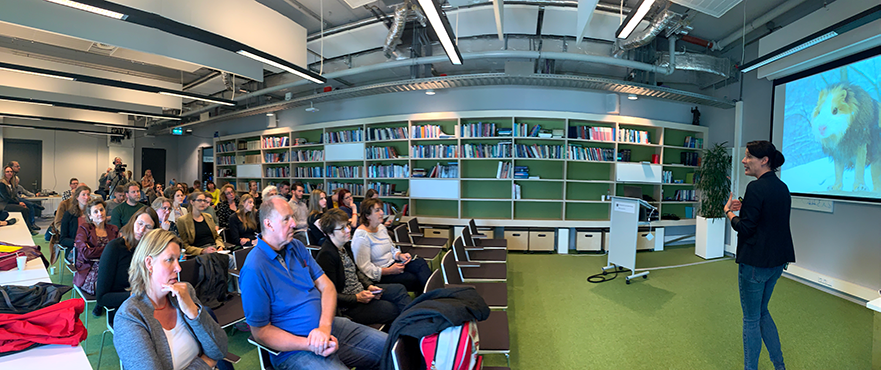
The Art of Feedback
Feedback.
One of the words that we hear over and over again as teachers. It’s also a word that brings such mixed emotions.
Yes – we believe in the power of feedback to support and develop our students’ intellect. But, it’s incredibly time-consuming – and in times of increasing work pressure – it feels more and more challenging. Even more, it can be disheartening and frustrating when we feel as though our feedback is for naught. So many of us know that feeling of seeing your painstakingly-commented student papers still not picked up, weeks after the grading was completed. Or that feeling that your feedback was simply disregarded. But we also know the feeling when a student’s work and skills improve, and then we feel like our effort was completely #WorthIt.
How do we do this? How do we provide supportive and constructive feedback while being mindful of the time pressures that all of us are facing? Is there an answer?
Well, Dominique Sluijsmans – in her session The Art of Feedback – took a big leap and suggested “yes, there’s an answer … but it means changing how we think about feedback”.
In her hour-long session on 11 June, which more than 60 of our TLCommunity members attended, Dominique encouraged us to think differently about feedback – how we approach it, how we deliver it, and our expectations from it.
Perhaps controversial to some, it really made us all stop and think … and ask questions … a lot of questions! There was a lot of interesting points raised, so we encourage you to (re)watch the event in the video below.
For us, the following KEY MESSAGES stood out:
- Feedback should connect with learning objectives and increase student aspiration and effort. But, it’s not about grading. Feedback is about learning. Yes, there can be incentive (via grades) to motivate students to pursue and utilize feedback, but this should be reasonable given the goals of the course.
- Feedback should push students outside their comfort zone and into the struggle zone – but not as far as the panic zone.
- Feedback is not one-sided. Feedback is a process in which students should be responsible for the feedback they desire and use it to enhance their work or learning strategies. This means student must be ACTIVE players in their education.
- Students must know, in advance, your approach to feedback so that they can adjust their own behaviours accordingly.
So, if feedback is not a product, but a process that requires active student participation, how do we do this? What are some TEACHING TIPS that can get us started? Dominique offered a few:
- Detective Time! Rather than marking each item right / wrong, encourage the student to find and correct their errors – “Five of these are incorrect; find them and fix them”
- Put Your Student in the Driver’s Seat. When handing in a draft, ask students to hand in three targeted feedback questions and provided targeted feedback on only these questions using the success criteria.
- Outside The Box. Feedback doesn’t just have to happen with assignments, use it in your classroom too! For example, you can build in questions throughout your lecture and provide feedback along the way to the responses. Even more, this is a great opportunity for peer-to-peer conversationbeforethey submit their answers! #ActivatedClassroomForTheWin
- Think Comparatively. Students can get a clearer idea of the learning objectives by comparing and assignments through peer review.
- Go Big! Rather than noting the same comments on every student’s assignment, write down general comments and present to class along with improvement tips and learning strategies for this specific assignment.
Finally, be sure to keep in mind that the best feedback cycle is the cycle where the student works harder than you. This is exactly what we heard when Mariska Knol gave her talk on mastering discussions. Students should be doing the work! When it comes to feedback, yes there will likely be multiple loops in the process, but your student should be the heavy hitter here. This is why it is so crucial to set expectations early-on with your students about your approach to feedback and their role in this process.
Share your thoughts with us
At the end of her talk, Dominique said “The feedback that you give to your students is a gift’ and then left us with a question –”how can we make students more aware that it is a really gift for them to appreciate?”. We were struck by this perspective and would love to hear more from our TLCommunity about your thoughts. We’d also love to hear your ideas about feedback – including tips and tricks for delivering effective and efficient feedback. Join the conversation here. We also welcome your ideas for next events and other ways that we can enrich the TLCommunity.






